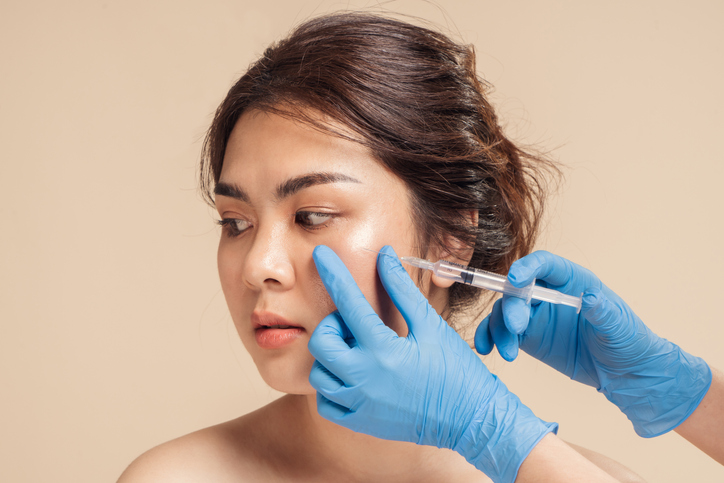The Blunt Tip Cannula vs. Needle Debate
In the world of aesthetic medicine and injectables, precision is paramount. A nurse injector course has become a crucial pathway for healthcare professionals to master the art of facial rejuvenation. A pivotal question that often arises during these courses is whether to use a blunt tip cannula or a traditional needle for administering dermal fillers and neurotoxins. Get an in-depth understanding of the intricacies of both methods, highlighting the differences, advantages, and considerations for aspiring nurse injectors.
Table of Contents
The Blunt Tip Cannula: A Modern Marvel
Blunt tip cannulas have gained immense popularity recently for their unique attributes and benefits.
Advantages
- Safety First: Blunt tip cannulas are designed to minimize the risk of puncturing blood vessels or nerves, making them a safer option, especially for novice injectors.
- Less Discomfort: Patients typically experience less pain and discomfort during injection with a blunt tip cannula due to its rounded, non-penetrating tip.
- Reduced Bruising: The blunt tip design is associated with reduced bruising and swelling, resulting in quicker recovery times.
- Versatility: These cannulas can be used for various facial areas, including the lips, cheeks, and under the eyes.
The Needle: The Tried & True
Needles have been a staple in the world of injectables for decades, and they continue to have their place in nurse injector courses.
Advantages
- Precision: Needles offer precise control over the depth and placement of injections, which can be advantageous for specific treatment goals.
- Speed: In some cases, needles may be faster for experienced injectors, making them suitable for high-volume practices.
- Minimal Product Waste: Needles typically result in less product waste, as there is no residual product within the cannula.
The Anatomy of a Blunt Tip Cannula
What exactly are the benefits of blunt tip cannula? It all starts by understanding its design and functionality.
How it Works
- Blunt tip cannulas have a rounded tip that gently pushes tissues aside, creating a tunnel for the product to flow through.
- This design minimizes trauma to blood vessels, reducing the risk of bruising and vascular complications.
- The length and gauge of the cannula can vary, providing flexibility for different treatment areas and goals.
The Needle’s Precision Advantage
Needles are renowned for their precision, which can be crucial in certain situations.
When to Use a Needle
- It is best for intricate treatments that require precise placement, such as filling fine lines or addressing specific facial contours.
- Usage is typically in cases where a faster injection process is necessary, such as during busy clinic hours or events.
- When patient anatomy or treatment goals demand pinpoint accuracy, needles can offer an advantage.
The Learning Curve: Blunt Tip Cannula vs. Needle
Nurse injector courses are designed to provide comprehensive training, but each method has its own learning curve.
Blunt Tip Cannula
- Novice injectors may find it easier to learn with blunt tip cannulas due to their safety profile.
- Confidence in cannula techniques can be quickly gained, leading to successful treatments.
- It’s crucial to develop a thorough understanding of facial anatomy to master cannula injections effectively.
Needle
- While needles require precision, they offer control that some experienced injectors prefer.
- It may take more time to build confidence in needle techniques, especially for those new to aesthetic medicine.
- A deep understanding of facial anatomy is essential for safe and effective needle injections.
Considering Patient Comfort
Patient comfort is a key consideration for nurse injectors. Both methods have their merits in this regard.
Patient Experience with Cannulas
- Blunt tip cannulas are often associated with less pain and discomfort during injection.
- Patients may appreciate reduced bruising and swelling, leading to quicker recovery times.
Patient Experience with Needles
- Some patients may prefer needles for their precision and quick delivery.
- Experienced injectors can minimize discomfort by using smaller gauge needles and employing advanced techniques.
Balancing Art & Science
Nurse injector courses emphasize the importance of balancing the artistry of facial rejuvenation with the science of safe and effective injections.
Artistry with Cannulas
- Blunt tip cannulas allow for a smoother, more even product distribution, enhancing the natural look of results.
- Injectors can focus on creating harmonious facial contours with a reduced risk of overcorrection.
Precision with Needles
- Needles offer precise control over product placement, enabling fine-tuning of facial features.
- Expert injectors can achieve intricate results that require exact placement.
The Future of Nurse Injector Courses
The choice between a blunt tip cannula and a needle ultimately depends on an injector’s comfort level, patient needs, and treatment goals.
Training & Education
- Nurse injector courses should include comprehensive training on both methods, allowing participants to develop proficiency in both.
- Ongoing education and workshops can help injectors stay updated on the latest techniques and technologies.
Patient-Centric Approach
- Choosing between a cannula and a needle should be based on what’s best for the patient, considering safety and desired outcomes.
- Nurse injectors should continuously seek to improve their skills and offer a range of options to meet individual patient needs.
In the ever-evolving field of aesthetic medicine, a nurse injector course is pivotal in ensuring safe and effective treatments. The choice between a blunt tip cannula and a needle is not a matter of one being superior to the other; instead, it’s about mastering both techniques to provide comprehensive care to patients. Whether sculpting natural contours with a cannula or achieving pinpoint precision with a needle, the key is prioritizing patient safety, comfort, and satisfaction. By embracing both methods, nurse injectors can expand their skill set and offer versatile solutions for their patient’s aesthetic goals.

